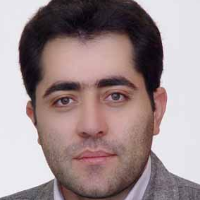A Phenomenological study of teachers’ lived experiences on the challenges of holding in-service training courses by Ministry of Education
Qualified and experienced teachers with high professional and educational ability are very necessary and vital for quality education. In this regard, professional development programs with lifelong and continuous training courses in various formats, including in-service training courses, are held for teachers. Despite the importance of these courses, a review of the findings of many studies suggests that in-service education courses were not so effective for many teachers. Therefore, the aim of this study was to explore the challenges of holding in-service training courses in education from the teachers’ perspectives.
The method of the present study is qualitative with a phenomenological approach in terms of lived experiences. The participants of the present study were all teachers working in West Azerbaijan Province. The research sample was selected by using non-probability purposeful sampling method with considering the criteria such as teachers' reputation, obtaining technology-related rewards in provincial or national festivals, and teaching experience of technology training courses in the Department of Education. The sample size was determined by considering the theoretical saturation rule. In order to receive the feedback of adequacy and theoretical saturation, after each interview, the data were immediately transcribed, handwritten, and encoded. After 22 interviews (13 women and 9 men), the data reached the theoretical saturation. The data collection method was the semi-structured interview. Two techniques of voice recording and note-taking (with the emphasis laid on voice recording) were used for data collection method. To analyze the data and extract the main themes, the content analysis approach was performed based on the four-step approach of Giorgi (1970) in the platform of MAXQDA10 software.
The findings showed that the challenges of holding in-service courses can be classified and presented in four themes or main challenges which are: 1) Motivation of the teachers for active and purposeful participation in the courses (including subcategories of internal challenges and external challenges); 2) the quality of and the method of holding the courses (including subcategories of lack of attention to the thematic nature of the courses, and lack of attention to the required infrastructure); 3) the Continuity (thematic and temporal) in holding the courses (including subcategories of lack of continuity of thematic hierarchy and lack of time continuity in holding the courses); and 4) adapting the content of the courses to the needs of the teachers (including lack of need-oriented courses, lack of attention to the proportion of the prerequisite knowledge of the teachers to participate in the courses and lack of specialized courses).
Comsidering that like other government organizations, holding in-service training courses for the teachers is mandatory in the Education Organization, it is assumed that holding such courses is somehow ‘fulfilling a duty’without paying attention to the ‘effectiveness’ of the courses. Therefore, it is cocluded that the first challenge should be lack of teachers’ motivation in participating in such courses. The second challenge is that since the required infrastructures for holding such courses are not provided, thus the courses lack the required effectiveness. The third challenge is that since in-service training courses are not held continuously, both thematically and temporally, therefore, despite spending a large amount of costs, their effectiveness is not evident. According to fourth challenge, since the prerequisite of ‘participation in the course’ and ‘determining the level of the teachers’ are not observed, thus, the content of the courses is not regulated with respect to the development of the professional skills of the teacher. Therefore, it is suggested that for holding such courses, first the assessment of needs and prerequisites of the courses should be formulated, the teachers should be graded, the required prerequisites for such courses should be provided. Considering the sequence of the topics, the courses
-
Design and validation of the problem-oriented curriculum model with emphasis on the role of life skills in the first year of high school
Asghar Naghipour *,
Journal of research in curriculum studies, -
The relationship between future-oriented leadership and managers' team acceptance: testing the mediating role of open innovation Case of study: principals of elementary school in West Azerbaijan provinc
, Rahim Fardiyan *, Farah Zenozi
Journal of Research in elementary education,



